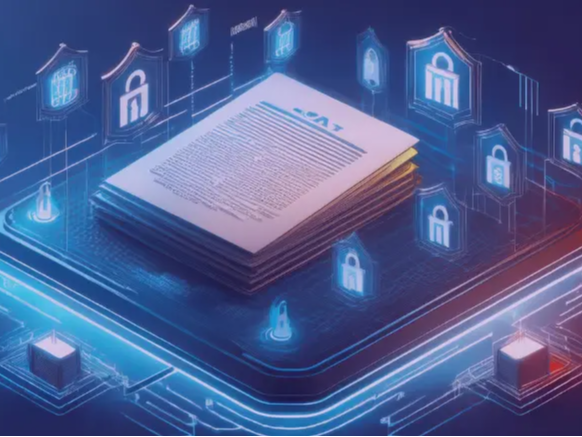OS Agents are intelligent agents capable of automating various tasks on computing devices such as computers or mobile phones through the environment and interfaces (like graphical user interfaces, GUIs) provided by the operating system (OS). They hold immense potential to improve the lives of billions of users worldwide. Imagine a world where everyday activities like online shopping and travel booking can be seamlessly handled by these agents, significantly enhancing life efficiency and productivity.
What are OS Agents?
OS Agents are intelligent entities that understand and execute complex tasks. They interact with computing devices through interfaces provided by the operating system to automatically complete a range of tasks from simple to complex. These tasks can include information retrieval, file management, online shopping, travel booking, and other daily activities.
How OS Agents Work?
OS Agents operate within environments provided by operating systems, such as computers, mobile phones, or browsers. These environments support agents in performing tasks from simple information retrieval to complex multi-step operations. Agents understand their operational environment by capturing information like screenshots, text descriptions, or GUI structures, which constitute the observation space of the agent. They define a set of actions that the agent can execute, such as clicking, typing text, navigating, etc., enabling the agent to interact with the environment and complete tasks.
OS Agents need to comprehend complex operational environments by processing information like screenshots and HTML code to extract key content and build a comprehensive understanding of tasks and environments. They break down complex tasks into subtasks and formulate sequences of operations to achieve goals. Agents must also dynamically adjust plans based on environmental changes. They translate plans into specific executable actions, such as clicking buttons, typing text, or calling APIs, achieving precise conversion from textual descriptions to operational execution.
Developing an adapted foundational model is central to building OS Agents. The model architecture can be existing large language models (LLMs), multimodal large language models (MLLMs), or combinations or modifications of these models. Training strategies like pretraining, supervised fine-tuning, and reinforcement learning are used to enhance the model's understanding of GUIs and task execution capabilities. The framework includes modules like perception, planning, memory, and action, which work together to enhance the capabilities of OS Agents. For example, the perception module understands screen interfaces through visual encoders, the planning module devises task execution strategies, the memory module stores operational history and environmental states, and the action module executes specific operations. Through the synergistic effect of these capabilities, OS Agents can automate various tasks on computing devices, improving user work efficiency and quality of life.
Main Applications of OS Agents
The application scenarios of OS Agents are very broad, including but not limited to:
Personal Assistants: Helping users manage schedules, remind important events, book travel, etc.
Enterprise Automation: Automating office processes like file management, data entry, customer service, etc.
Educational Assistance: Assisting students in learning, providing personalized learning resources and tutoring.
Healthcare: Offering health consultations, doctor appointments, medication management for patients.
Smart Homes: Controlling home smart devices like lighting, temperature, security systems, etc.
Challenges Facing OS Agents
Despite significant progress in the field of OS Agents, there are still challenges and future development directions:
Security and Privacy: OS Agents face various attack methods, including indirect prompt injection attacks, malicious pop-ups, and adversarial instruction generation, which could lead to system errors or sensitive information leaks.
Personalization and Self-evolution: Personalized OS Agents need to continuously adjust behaviors and functions based on user preferences. Multimodal large language models are gradually supporting the understanding of user histories and dynamically adapting to user needs.
System Scalability Challenges: As system scale increases, maintaining data consistency becomes a major challenge. Network latency becomes a significant factor affecting performance. Fault-tolerant mechanisms and high-availability architectures are needed to ensure system operation during failures.
Communication Overhead Challenges: In multi-agent systems, as the number of agents increases, the communication overhead between agents can lead to system performance degradation. Communication overhead includes the frequency of message passing, message size, and network congestion.
Coordination Challenges: In multi-agent systems, coordinating the behaviors of different agents to achieve common goals is a complex issue. It involves handling goal conflicts, resource competition, and decision synchronization among agents.
Development Prospects of OS Agents
With the rapid development of multimodal large language models (MLLMs), the potential and application prospects of OS Agents are increasingly significant. Multimodal large language models integrate multiple information sources like text, images, and audio, enhancing the machine's ability to understand and process complex information. For example, by integrating functions like voice recognition, image recognition, and gesture recognition, OS Agents can interact with users more naturally. Personalized OS Agents need to continuously adjust behaviors and functions based on user preferences. Multimodal large language models are gradually supporting the understanding of user histories and dynamically adapting to user needs. For example, through continuous learning and optimization during user interaction and task execution, enhancing personalization and performance. Memory mechanisms are expanding to more complex forms like audio, video, and sensor data, providing advanced predictive capabilities and decision support. Supporting user data-driven self-optimization enhances user experience. The development of OS Agents will drive the advancement of artificial intelligence technology, bringing transformation to various industries. Researchers will continue to explore and innovate, breaking through technical bottlenecks to achieve a smarter, more convenient lifestyle. In the future, OS Agents are expected to become indispensable intelligent assistants in people's lives, assisting in handling various affairs, from daily chores to complex work tasks.








